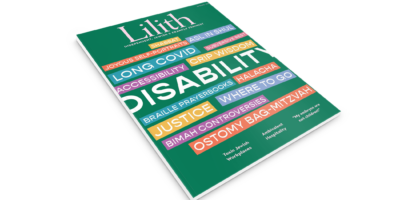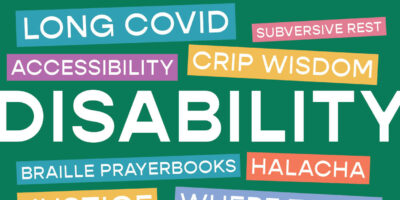
Illustration
Two Jews, Three Opinions, Online Rage
Since the war began, though, online spaces have changed. Especially troubling to me is how common it’s become for Jews to weaponize the term “self-hating Jew” or even “not a real Jew” to attack other Jews whose opinions on the conflict do not directly align with their own. In an online comment
that has stuck with me, for instance, one Jewish keyboard warrior told another Jew that a Jew “would literally have to hate themselves” to question Israel’s political and military leadership.
No Jew has the supreme authority to proclaim another Jew’s relative Jewishness, yet this name-calling has become worryingly common. Or are we as diverse—even ethically and morally—as everyone else? And what has happened to two Jews, three opinions? The culture of debate?
The Mishnah, in fact, encourages Jews to approach disagreements as Machloket l’shem Shamayim, which translates to something like “argument for the sake of Heaven”: disagreeing with someone out of a place of mutual respect—without hubris—where each can agree that the betterment of humanity is the ultimate goal. Rabbis Hillel and Shammai are often viewed at as the ultimate example of Rabbinic Machloket l’shem Shamayim: two sages who often disagreed but treated the other’s perspectives with dignity and respect. After all, even when lives are on the line, our online arguments are just that.
What if we start here? Safety and peace for our fellow Jews and for Palestinians, both there and everywhere, is a good and nearly universal desire. Our differences, our vast differences, amount to how best to achieve that (and at what cost). Denying someone’s Jewishness defies the spirit of Machloket l’shem Shamayim and threatens our communities from the inside. Attacking each other with broad strokes leaves no room for real discussion and certainly no room for growth, progress, or peace. Historically, Jews have dealt with so much violence, discrimination, and hate enacted by outside forces: we cannot afford to inflict pain against each other. And perhaps—that’s why we inflict pain against each other?
But at the very least, no Jew gets to define another person’s Jewishness, especially not in the semi-anonymity of the internet. As Michael Chabon astutely observes, “the history of Israel, like the history of the Jewish people and of the human race, has been from the beginning a record of glory and fiasco, triumph and error, greatness and meanness, charity and crime.” That is, Jews are not—and never have been—a monolith. Rather, we are a diverse group that contains both the best and worst of humanity because we are humans—not more and not less.
From Lilith Online, LEAH GRISHAM, January 2024.




